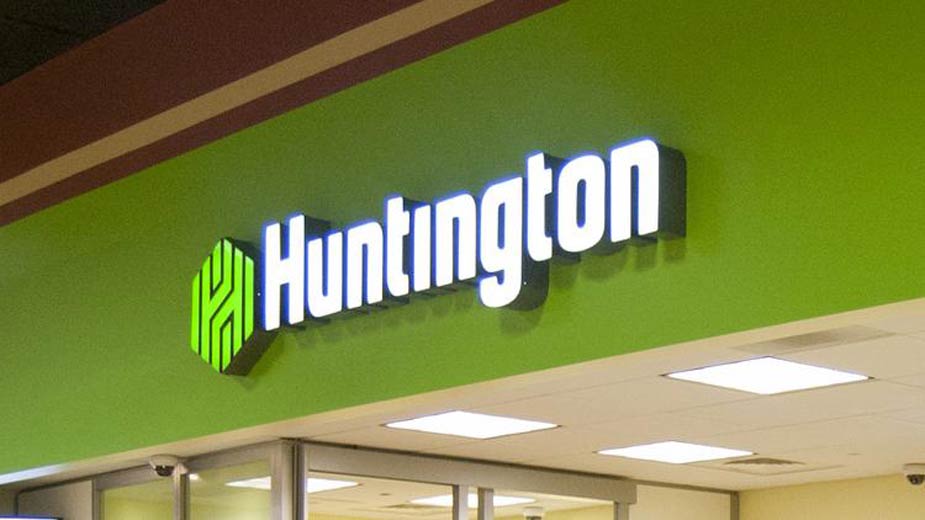Local Execs Reassure Deposits are Safe in Community Banks
YOUNGSTOWN, Ohio – As of now, local community bank executives are treating the failure of Silicon Valley Bank and Signature Bank as relatively isolated cases that are unlikely to trigger long-term turmoil in the financial sector.
Still, the failures roiled markets Monday as regulators worked to stanch any further losses across the system.
Kevin Helmick, president and CEO of Farmers National Bank in Canfield, and Gary Small, president and CEO of Premier Financial Corp. in Youngstown, say the two failed banks were heavily reliant on specific industries that left them more exposed than traditional banks with more diverse portfolios.
“This is not the case for most banks in the country, and it won’t spread,” Helmick said of the crisis involving SVB and Signature. “The Feds stepped in and have done a lot. The banks are safe.”
Small says it’s still too early to properly gauge the fallout from the bank closures. Yet based on the information available, he said that any immediate disruption could settle within the next several weeks.
By then, the situation could be viewed as a matter “that was handled as well as it could’ve been handled. An isolated event,” he said.
On Friday, regulators took control of California-based SVB, the second-largest bank failure in U.S. history. On Sunday, the Federal Deposit Insurance Corp., or FDIC, took the same action against New York-based Signature, the third-largest bank to fail.
The government has insured all of the two bank’s deposits, and clients were able to access their accounts Monday.
President Joe Biden said Monday morning that his administration “reached a prompt solution that protects American workers and small businesses, and keeps the financial system safe.”
Still, regional bank stocks reeled during trading Monday. Shares of First Republic Bank plummeted nearly 62% at the closing bell, while Western Alliance Bancorporation’s stock fell 47%.
Larger banks such as JP Morgan Chase were not as affected, nor were smaller community lenders such as Premier and Farmers. At the close of business Monday, Premier stock was down 3.4%, while shares of Farmers National Banc Corp. traded 5.6% lower.
Helmick says in the case of SVB, the institution was too heavily vested in tech startups. The bank’s business boomed as tech did well, but higher interest rates over the past year began to place stress on these companies. Amazon, Meta and other tech giants, for example, announced layoffs over the past several months.
“There was a really heavy concentration of high net worth accounts,” Helmick said. “It hit a tipping point.”
As these clients burned more cash, the bank attempted to sell off long-term bonds to shore up its liquidity, Helmick said. However, higher interest rates had pushed the value of those bonds much lower, inhibiting the bank’s ability to raise enough cash.
“They were tapped out,” he said. “They didn’t have the extra liquidity.” Community banks such as Farmers, on the other hand, are well capitalized, he said.
Signature Bank faced the same problems and was heavily vested in cryptocurrency, Helmick said.
“Silicon Valley Bank and Signature had very unique business models,” he said.
While the bond market was a factor, Helmick said most of the problems with the two banks stemmed from their lack of a liquidity contingency plan and overall business model.
On the other hand, community banks such as Farmers and Premier boast a far more diversified client base that encompasses manufacturers, agriculture and service industry ventures such as restaurants and retail businesses.
“We’ve had to differentiate ourselves from the organizations that had those struggles last week,” Small said. “If you were to look at Premier Bank – a very diversified business and consumer mix.”
Small said most of the Premier’s consumer clients know that their deposits are protected through the FDIC, which insures deposits of up to $250,000. Most deposits on the business side are used to support day-to-day working capital, he noted.
Banks such as Premier work within a “more stable deposit environment versus a much more volatile deposit environment that, unfortunately, a couple of banks had to deal with over the last few days,” Small said.
The two bank meltdowns could also cause the Federal Reserve to hold off on another rate hike, Small noted. However, he speculated such a pause would most likely be short-term.
“A month out, whatever the norm is, we’ll be back to the norm,” he said.
If anything, the ordeal of SVB and Signature highlights that higher interest rates, coupled with an inverted yield curve – a phenomenon that occurs when short-term bond yields are higher than long-term – could come with consequences.
“It can have repercussions,” Small said. “I think every bank is facing that to some degree across the nation in this rising rate environment.”
Small said he’s pleased with the speed regulators worked to contain the bank failures and to secure depositors’ funds. “The system worked,” he said.
Helmick said he’s also heartened by the FDIC’s quick response.
Moreover, funds to insure these client deposits won’t come from taxpayers, Helmick emphasized. Instead, he speculates the funds to cover the deposits would come from insurance assessments that banks pay to the FDIC each year for coverage.
“People are skeptical,” Helmick said, noting that some may feel that this is akin to some sort of bailout at the public’s expense. “This is not on the taxpayer’s back. It will go through the banking system.”
Although there are still some unanswered questions, Helmick noted the recent bank failures are likely to spur some action on the federal level related to the banking industry.
“The most interesting thing that’s going to come out of this are the new banking regulations and what the Federal Reserve monetary policy ends up looking like,” he said. “Will the Fed continue to raise rates, or will the Fed start to cool it?”
Another variable is whether the FDIC will boost its insured deposit threshold above $250,000, Helmick said.
“I think the Fed acted quickly and comprehensively, and I’ll be interested in what happens over the next 12 months,” Helmick said. “They did the right thing.”
Pictured at top: Photo courtesy of pexels.com.
Copyright 2024 The Business Journal, Youngstown, Ohio.


